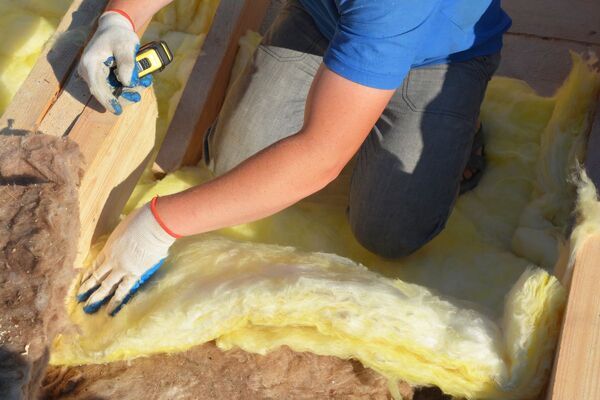15 minutes with… Derek Horrocks, chair of the National Home Decarbonisation Group
Derek Horrocks is chair of Sustainable Building Services UK and the National Insulation Association. He tells James Riding about the National Home Decarbonisation Group (NHDG), a new membership organisation for Tier 1 contractors and energy suppliers. It launched in June and held its first meeting with government officials in July
How did the NHDG come about?
As soon as the money started coming in from the Social Housing Decarbonisation Fund (SHDF) demonstrator scheme, it became apparent that the construction industry had to change rapidly to take advantage of this.
I’ve got excellent relationships with the Department for Energy Security and Net Zero and other stakeholders. I thought it would be a good opportunity to pull a group together that could plan, influence and advise the government and provide a platform to grow the supply chain in a sensible manner, but, most importantly, keep the focus on high levels of quality and customer service. We targeted 30 of the largest companies in the decarbonisation of homes. To date, we have 20 members.
How do you maintain high standards as the industry grows?
The structure that comes with PAS 2035 and PAS 2030:2019 is a high standards-driven procedure that every company which utilises any level of government funding has to go through, for schemes large and small.
Certain companies that deliver at scale aren’t used to that quality framework. Adapting to that is difficult, having to follow such a strict process. It’s very admin intensive, as well.
Increasing the level of protection for customers, and getting more companies to buy into and get used to delivering that, will keep the quality and standards at the levels that are needed.
What strategy is needed to scale up retrofitting skills?
Tier 1 companies and the energy suppliers delivering at scale have the size, resources and contracts to invest heavily in training.
Working closely with local authorities and housing associations, and training providers within those localities, we can look to put platforms in place that will make a big difference. Because this is an emerging market, traditional providers of construction skills are saying, ‘We haven’t got the trainers and the skills to provide these new courses. We’ve got to invest a lot and our worry is people won’t come.’
Alongside that you’ve got contractors with needs that are growing rapidly, and you’ve got clients for whom the work is very regionalised.
We need to train and reskill people in the local community. The local authority and housing associations can say how many people they need in an area and then we will ensure that we put so many people on a training provider’s course. We can also use some of our skills to train trainers.
The industry and smaller companies can then tap into that expanded network and get their workforces trained. They can also tap into some of the trained workforce that’s been delivered.
What do you need from the government?
The biggest ask is long-term certainty regarding funding. The SHDF Wave 2 has given us two-and-a-half years, which isn’t a long time at all. What it does do is provide some certainty to the industry that there’s a large chunk of money there. We’d much rather have seen five years, and we’re pushing hard for Wave 3 to reflect a longer period.
Ideally, we’d like some sort of cross-party commitment to a retrofit infrastructure project, so we could see 20-25 years ahead.
A smaller ask is some resources for clients, the housing associations and local authorities. This is new to them, budgets have been cut in the past, they’ve lost people that would traditionally work in this industry, and with the advent of design and build, a lot more skills go out to the contractor.
These programmes require quite a high level of knowledge from the client’s side to work. The government’s Social Housing Retrofit Accelerator is doing a good job of educating clients, but they need more in-house skills so they’ve got the ability to supervise and provide the right contracts.
Can you expand on the group’s focus on innovation?
There are two distinct areas of innovation for this industry: the digitalisation of the process, and monitoring and evaluation.
The digital technology is there now to understand occupancy, and measure how the different ways people live in their houses affect the success of the measures that are installed.
We also want to look at offsite construction. We can improve skills dramatically, but it’s still a very labour-intensive industry. What you tend to have is lots of smaller companies with great ideas and no money. Within the group, we can certainly share best practice.
I’m sure there’s still a huge element of, ‘We want to get ahead of our competition, we want to showcase that we’re the innovative company.’ However, we’ve got to ensure that good ideas and things that work are brought to the table.
For the first time, certainly that I’ve known, there is a feeling that this element of the industry is a bit different. I always say we’re not a construction company, we’re solution providers for the four crises the UK suffers from today: climate, energy, health and the cost of living.
Sign up for HOMES UK and Unlock Net Zero Live
HOMES UK and Unlock Net Zero Live is designed to help housing and asset management, development and sustainability professionals find the solutions and connections they need to rise to the challenge.
With over 275 speakers across six theatres and 70+ hours of CPD accredited content this is a must-attend event for all #UKhousing professionals.
Register for your free* ticket here.
Sign up for our daily newsletter
Already have an account? Click here to manage your newsletters














